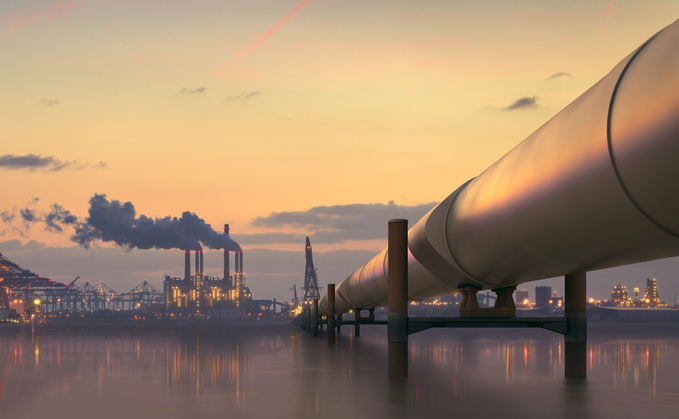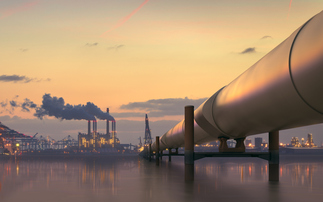Credit: iStock
Balancing environmental impact reduction with ongoing fossil fuel demand crucial for oil and gas firms to effectively support the energy transition, according to DNV
Almost two-thirds of oil and gas executives believe the green energy transition is accelerating worldwide, but many continue to harbour concerns about barriers to investing in renewable and cleaner energy sources, as well as emerging green skills shortages across the sector.
Those are some of the key insights from fresh research - titled The Paradox of Petroleum: How the oil and gas sector is transforming through uncertainty - carried out by risk management firm DNV, which quizzed 450 senior oil and gas industry leaders from around the world for their views on investment, growth, and decarbonisation efforts across the sector.
Published today, the survey findings point to widespread concern among executives over long-term oil supply, underscoring the need to balance immediate fossil fuel demand with investment in renewables, according to DNV.
The survey found almost two-thirds of respondents believe the oil and gas sector is now bouncing back from a pandemic-driven downturn in 2020 and are optimistic about industry growth over the next year.
Yet elsewhere, the findings highlight widespread concerns over investment in new capacity and a looming "paradox" between the need to meet demand and deliver decarbonisation, DNV said.
At present, more than half - 51 per cent - of executives believe global investment in new oil and gas capacity is insufficient, according to the survey findings, including 70 per cent of those in North America and 40 per cent of those in Europe.
Meanwhile, 61 per cent said they were committed to reducing the environmental impact of their activities and are planning to increase investment in decarbonisation.
As such, DNV said balancing decarbonisation efforts with meeting ongoing oil and gas demand would be critical to enabling the energy transition.
Profitability was frequently cited by respondents as a major barrier to securing continued oil and gas investment due to the high-risk nature of new projects. But the survey also found many industry leaders continue to harbour concerns about barriers to investing in cleaner energy sources, with 49 per cent citing lower financial returns as the main barrier to ramping up funding for low carbon energy initiatives.
Additionally, a third of those surveyed claimed that constraints from existing business models and risk profiles, as well as unclear energy or emissions policies, were stifling clean energy investment, while required capital was cited as a significant obstacle by 30 per cent of respondents to the survey.
The study also found that two-thirds of oil and gas execs believe attracting more young, skilled workers to address the industry's emerging gap in skills is critical to supporting expansion, decarbonisation, and modernisation efforts across the sector in the coming years, according to DNV.
Ditlev Engel, energy systems CEO at DNV, said the future of the global oil and gas industry would hinge on its ability to meet current demand for fossil fuels while simultaneously accelerating the shift to cleaner energy in order to meet decarbonisation targets.
"The oil and gas sector is at a critical juncture," he said. "Their dual task to invest in low carbon and renewable energy sources to meet climate targets while meeting global demand and maintaining operational efficiency and profitability is not an easy fix.
"Our survey demonstrates that industry leaders in the sector are confident about their role in the energy transition and are actively seeking solutions to navigate this transformation. More profitable business models and clear policies are needed to accelerate this change in the sector."
Want to understand what is going on at the cutting edge of sustainability? Check out BusinessGreen Intelligence - the premier information for professionals focused on the UK's green economy.










